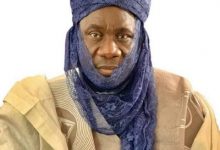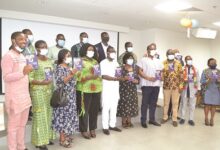
Mr Mensah Thompson, Executive Director of Alliance for Social Equity and Public Accountability (ASEPA-Ghana), says Ghana’s fledgling democracy is constantly being threatened by the creeping exclusionary politics and voter suppression.
He noted that politics of exclusion had risen sharply and occurred at targeted regions considered as strongholds of the two main political parties, the National Democratic Congress (NDC) and the New Patriotic Party (NPP) during general elections.
Mr Thompson made the observation at a day’s dialogue session on politics of exclusion in the Volta Regional capital Ho, which was organised by the Community Focus Foundation (CFF-Ghana), a Ho based non-governmental organisation, in partnership with ASEPA Ghana and the Democratic Credentials Network (DCN-Ghana).
The event that wason the theme: “Politics of exclusion; a threat to Ghana’s democracy,”brought together civil society organisations, representatives of various political parties, religious groups, the Volta Regional Peace Council, youth associations and other stakeholders.
Mr Thompson said: “the earlier we tackle this canker collectively, the better for Ghana, a country considered as the citadel of democracy in Africa.”
He noted that during the voter registration in 2020, the government deployed military personnel to some border towns of the country, especially the Volta Region, considered by many as the stronghold of the NDC.
Mr Thompson said although the government argued that the deployment was for good reasons, some political actors, including the NDC vehemently rebutted government’s claims and alleged it was tactics being used to prevent
people of the affected regions from registering to participate in the 2020 General Election.
He cited the ongoing debate on the use of the National Identification or the Ghana card as sole proof of identity to register and vote in the 2024 polls, and advised the Electoral Commission (EC) to avoid any such move as it would disenfranchise several Ghanaians, who may not have the card.
Mr Thompson said the Ghana card in its present form was an ECOWAS travel document, which failed to pass for a national identity card, adding that Ghana needed a synchronised national identification regime.
Mr Richard Kasu, Executive Director for CFF-Ghana, said CFF-Ghana through its participatory democracy, peace and security programme, was partnering stakeholders to design strategic initiatives to influence public policy on participatory governance and promote electoral integrity, peace and security.
Mr Mawutor Agbavitor, Volta Regional Chairman of the NDC, said:“politics, at its core, should be a unifying force, bringing together diverse voices, including political actors and citizens to take collective actions in the right perspectives for the greater good of our nation Ghana.”
He said that no region should be treated as a political pawn or subjected to discriminatory policies as being witnessed in recent times.
“Each region, including the Volta Region, deserves equal attention, support, and opportunities for growth and development – it is our collective responsibility, as citizens and leaders, to challenge the politics of exclusion and demand inclusivity from our government,” Mr Agbavitor said.
“We must hold our leaders accountable for their actions, advocating for equitable distribution of resources and fair treatment of all regions including the right to register and participate in national elections,” he urged.
Mr Agbavitorcalled on government and all stakeholders to collaborate efforts to ensure that every Ghanaian, regardless of their ethnic background, religious affiliation or geographic l ocation, “fully participate in our democratic process and benefit from opportunities our nation provides by rejecting exclusion.” – GNA







